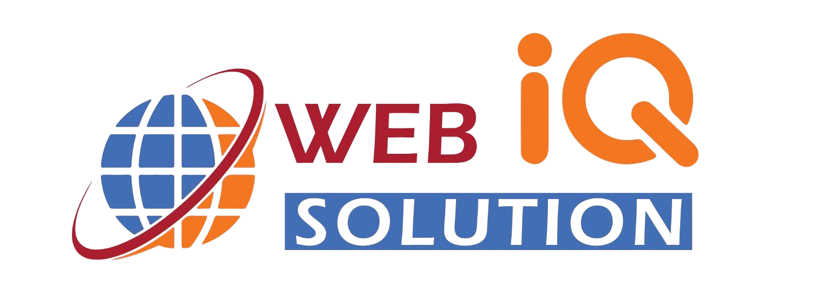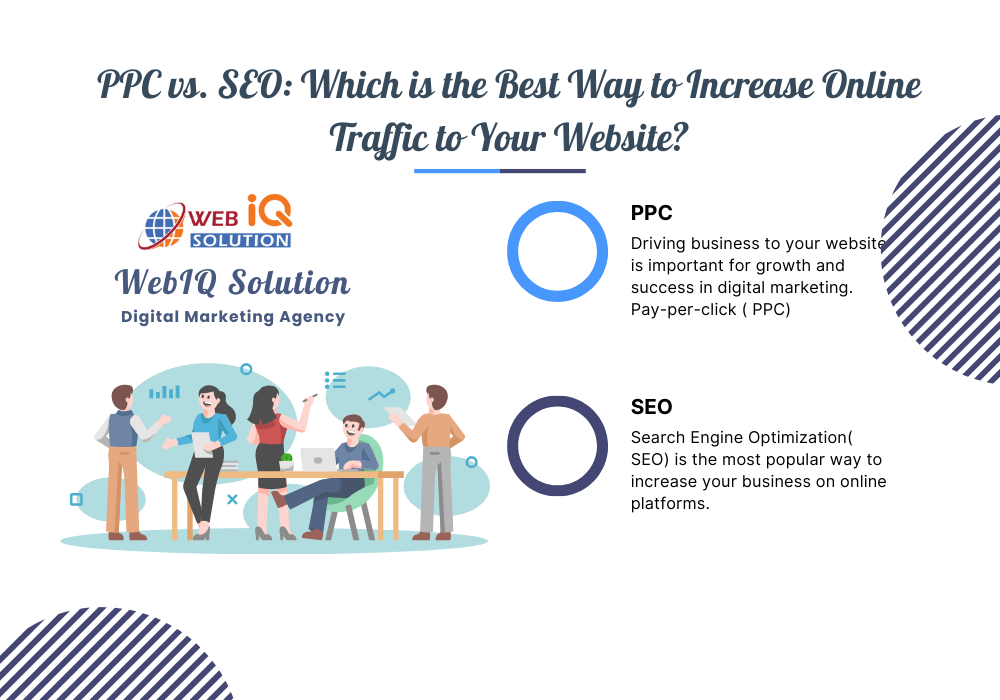PPC VS SEO - Which Is The Best Way To Increase Online Traffic To Your Website?
Driving business to your website is important for growth and success in digital marketing. Pay-per-click ( PPC) and Search Engine Optimization( SEO) are the most popular ways to increase your business on online platforms. Two of them have their way of increasing online traffic. But which option is more beneficial for your business? In this blog post, we will discuss PPC and SEO in detail. Compare their pros and cons, and help you choose which way is right for you.
What Is PPC?
Pay-per-click ( PPC) is a form of paid online advertising where businesses pay each time someone clicks on their announcement. These advertisements generally appear on Search Engine Result Pages ( SERPs), Social Media platforms, or other websites. Google Advertisements is the most common platform for PPC juggernauts, but other options like Bing Advertisements and Facebook Advertisements exist. Pay-per-click allows businesses to target specific keywords and reach their buyers searching for products or services. The thing about PPC is to drive immediate business to your website.
Advantage of PPC
Immediate Results: PPC advertisements inspired immediate business. As soon as your content is live, customers can start clicking and visiting your website. Highly Targeted: PPC allows for fine targeting. You can set up your ads based on keywords, location, demographics, interests, and even time of day. Measurable: PPC campaigns are highly measurable. You can track clicks, conversions, and ROI, making it easier to adjust and optimize campaigns.
Top Search Engine Positioning: Ads often appear at the top of Search Engine Result Pages, giving your website prime visibility.
Disadvantage of PPC
Costly: The more competitive your keywords are, the higher the cost per click. For highly competitive industries, PPC can become expensive quickly. Short-Term Results: Once you stop paying for ads, the traffic stops coming. It’s a continuous investment if you want to keep traffic flowing.
Ad Blindness: Some users ignore ads, which can decrease the effectiveness of your campaign.
What Is SEO?
Search Engine Optimization (SEO) is the process of optimizing your website so that it ranks higher in search engine results pages (SERPs) organically. SEO involves improving your website’s content, structure, and technical aspects to make it more attractive to search engines like Google. The goal of SEO is to generate free, durable traffic over time. SEO is divided into three main components: On-page SEO: Optimizing content, title tags, meta descriptions, H1 to H6 heading, and images. Off-page SEO: Building backlinks from other high Domain Authority and High Traffic websites to increase authority. Technical SEO: Make sure that your website is mobile-friendly, Desktop-friendly, fast, and easily crawlable by search engines.
Advantage Of SEO
Cost-Effective: Although SEO requires an investment of time and resources, it does not involve paying for every click. Once you rank well, traffic can be relatively cheap. Long-Term Benefits: Unlike PPC, which stops generating traffic once you stop paying, SEO results are long-lasting. Once you achieve a high ranking, it can take months or even years to fall. Builds Trust and Credibility: Users are more likely to trust organic search results over paid ads. Ranking high in search engines can enhance your brand’s credibility and awareness. Better User Experience: SEO requires you to improve your website's structure, speed, and content, which will benefit both users and search engines.
Disadvantage Of SEO
Slow Results: Unlike PPC, SEO takes time to produce results. It may take weeks or months before you see an improvement in traffic. Constant Algorithm Changes: Search engines like Google frequently update their algorithms, which can impact your rankings and traffic. Staying up-to-date on SEO best practices is crucial. Highly Competitive: SEO requires ongoing effort, especially in highly competitive industries. It can be challenging to surpass established competitors.
PPC VS SEO - Which One Should You Choose?
Now that we’ve covered the basics of PPC and SEO, let’s look at the key factors to consider when choosing between the two. PPC is ideal for businesses that need immediate traffic, such as for time-sensitive promotions or product launches. It’s a fast way to get visibility. SEO, on the other hand, is a long-term strategy. If you’re looking to build sustainable, ongoing traffic over time, SEO is the way to go. If you have a large budget to spend on ads, PPC can provide a quick return on investment(ROI). But it can get expensive, especially if you’re in a competitive industry. If you have a limited budget, SEO is more cost-effective in the long run. Although it requires time and resources to implement, it can generate free traffic over time. In highly competitive markets, PPC can help you stay ahead of the competition by making sure your ads appear at the top of search engine results pages (SERP). SEO is more challenging in competitive niches. If your competitors are already well-established and have strong SEO, it can take a lot of effort to rank higher.1. Time Sensitivity
2. Budget
3. Competition
Combining PPC & SEO For The Best Result
While both PPC and SEO have their advantages, the best approach is often to combine the two strategies. Here’s why: Immediate Traffic + Long-Term Sustainability: PPC can bring immediate traffic while you build your SEO strategy to generate long-term organic traffic. Keyword Insights: PPC campaigns can provide valuable data about which keywords perform best, which you can use to inform your SEO strategy. Maximized Visibility: When you appear both in organic search results and as a paid ad, you increase the chances of being seen by potential customers.
Why Is Meta Ads Crucial To Grow Your Business To Its Fullest?
Meta Ads provide extremely important opportunities to grow a business through reliable targeting of certain audiences on platforms like Facebook, Instagram, and Messenger. They make it possible for the brand to focus on the most potential customers. Along with the many fun formats, prices are low, and the analysis allows businesses to make engaging ads that provide measurable results. Another important Meta marketing feature is scalability. It helps in remarketing with a real-time behaviour-tracking tool, which facilitates campaign changes to ensure maximum conversion. With these functions, a business will be able to gain awareness, drive traffic, and eventually increase sales profitably and efficiently.
Final Thoughts
Both PPC and SEO are powerful tools for increasing online traffic to your website, but they serve different purposes. If you need immediate results and have a budget to invest, PPC can be the right choice. On the other hand, if you’re looking for sustainable, long-term traffic, SEO is the way to go. Ultimately, the best approach is often to use a combination of both strategies. PPC can help you get immediate results, while SEO can build long-lasting traffic and authority. By balancing both, you can optimize your online presence and achieve your business goals more effectively.

